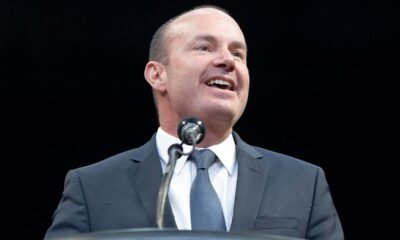INTERNACIONAL
The Speaker’s Lobby: ‘Whose throat do I get to choke?’

It was a split screen Tuesday morning on Capitol Hill.
One eye on the markets. The other eye on the Senate testimony of U.S. Trade Representative Jamieson Greer.
«Do you think your remarks will alter the markets in any way?» yours truly asked Greer as he walked to the hearing room in the Dirksen Senate Office Building.
«I’m just going to respond to the senators. Be candid as I can be,» replied Greer.
TRUMP TRADE REP TAKES BIPARTISAN FIRE OVER TARIFFS AS DEM LAUNCHES BID TO HALT THEM
The public has heard a lot about tariffs from Commerce Secretary Howard Lutnick.
They’ve heard a lot about tariffs from Treasury Secretary Scott Bessent.
They’ve heard even more about tariffs from White House advisor Peter Navarro.
But until Tuesday morning, there was little said about tariffs from the man in charge of the administration’s trade policy: Jamieson Greer.
All eyes were on two things Tuesday morning — the stock market and Trade Representative Jamieson Greer. (AP/Getty Images)
«The president’s strategy is already bearing fruit,» Greer testified. «Nearly 50 countries have approached me personally to discuss the president’s new policy and explore how to achieve reciprocity.»
Democrats were dubious about Greer’s suggestion. Yes, nations may be willing to negotiate. But carving out sophisticated trade agreements with nations just sanctioned by the U.S. takes time.
«You’re telling us you have nearly 50 countries coming to you, approaching you to enter into negotiation, and you think that you can do that overnight?» asked Sen. Catherine Cortez Masto, D-Nev. «You’re pretty superhuman here, if that’s the case.»
TRUMP TRADE CHIEF FACES HOUSE GRILLING ON TARIFFS
Greer tangled with Sen. Maggie Hassan, D-N.H.
«Even if inflation hits Americans’ pocketbooks at 10% because of these tariffs, then the Trump administration is still going to go charging ahead?» asked Hassan.
«Senator, your hypotheticals are not consistent with the history we have seen with tariffs,» Greer replied.
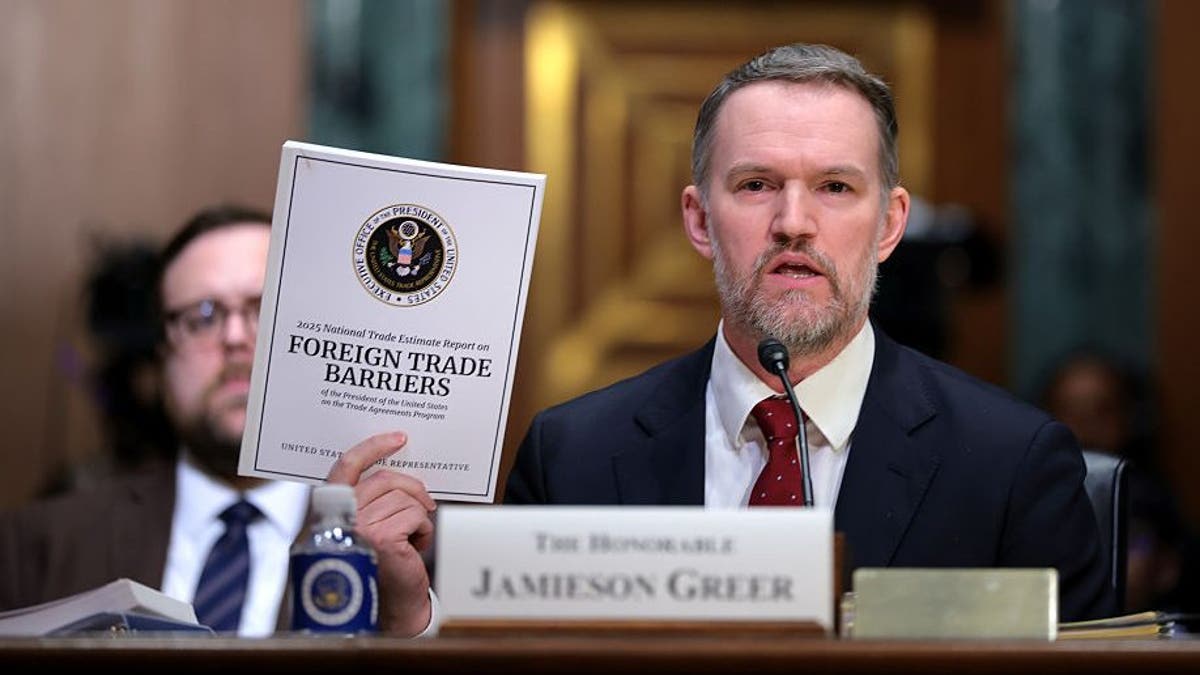
Greer got the third degree from members of Congress on both sides of the political aisle. (Kayla Bartkowski/Getty Images)
«My hypotheticals are based on the fact that a lot of Americans are looking at their 401(k)’s today and wondering how much of a lifestyle change they are going to have to have or whether they’re going to be able to retire when they plan to,» Hassan shot back. «This has been a haphazard, incompetent effort. And it’s showing.»
After rough showings, the markets actually shot up at the opening bell Tuesday before Greer spoke. It didn’t appear that anything Greer told senators resonated positively or negatively on Wall Street. But lawmakers were well attuned to the market fluctuations.
Especially as they started to hear from constituents.
TRUMP SAYS HE’LL ‘TAKE A LOOK’ AT EXEMPTING SOME LARGER US COMPANIES HIT ESPECIALLY HARD BY TARIFFS
Outside the hearing room, Sen. John Kennedy, R-La., offered one of his signature Bayou homilies to characterize the unfolding trade war.
«God created the world. But everything else is made in China,» said Kennedy.
«But senator, isn’t the bigger issue here the question of the uncertainty in the markets and rattling around?» I asked Kennedy.
«Well, there’s always uncertainty,» answered Kennedy.
«But this is a different type of uncertainty, though, Senator,» I countered.
«Is it going to have to have an impact on your capital markets? Well, yes. Duh. And it’s not fun. It’s very, very painful. Whether this will have a happy ending or a sad ending depends in large part what President Trump does next,» said Kennedy.
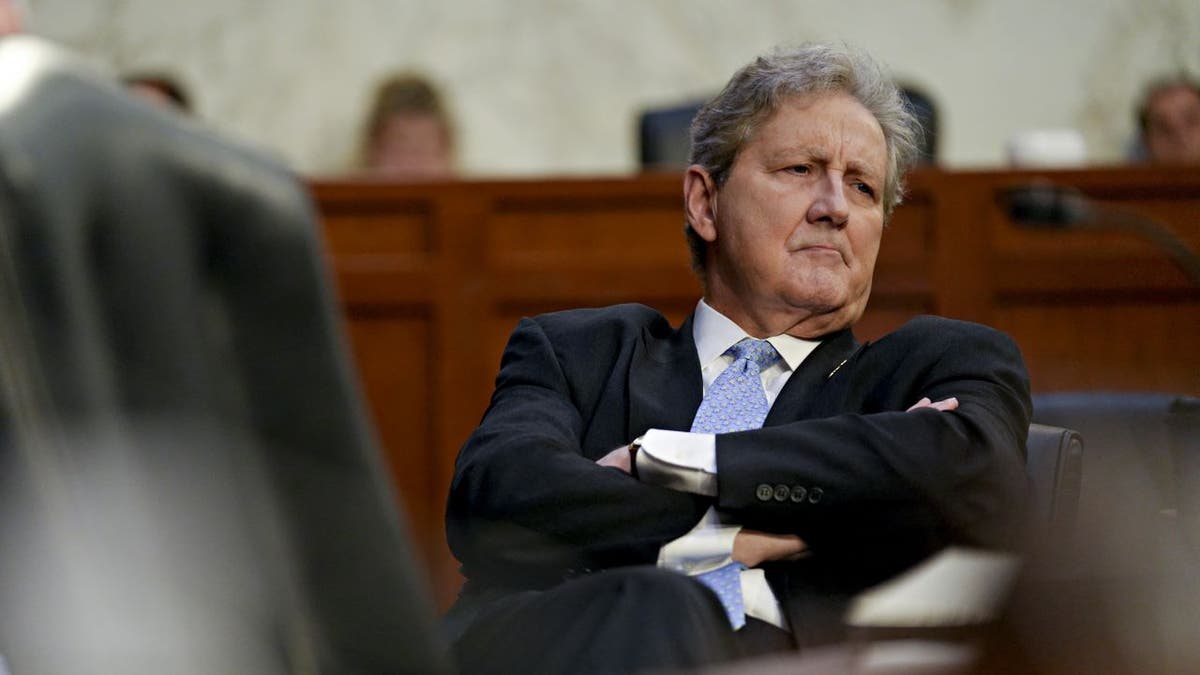
Sen. John Kennedy, R-La., acknowledged the fate of the market lies largely in the hands of President Trump and whatever his administration does next. (Eric Lee/Bloomberg via Getty Images)
And that’s the key to the entire enterprise. It doesn’t matter what Lutnick does. Or Bessent. Or Navarro. And not Greer. For better or worse, this is President Trump’s baby. Only he can move markets. And potentially trade deals. And that’s certainly what unfolded in recent days.
Democrats — and some Republicans — excoriated the president for unilaterally imposing the tariffs. Lawmakers asked the reasoning for imposing the tariffs. And they argued that the tariffs should have been an issue which came to Capitol Hill.
«Where was the consultation with Congress about this? Where is the homework? You know, Greek and Roman letters thrown on a plaque doesn’t mean a strategy that you’ve informed Congress on,» Sen. Maria Cantwell, D-Wash., the top Democrat on the Senate Commerce Committee, asked. «And part of the question is, where’s the homework done by the administration to not misconstrue the authority that was given?»
SCHUMER SAYS TRUMP ‘FEELING THE HEAT’ AFTER RECIPROCAL TARIFF PAUSE
Cantwell may not have received a sufficient answer from the Trump administration on the rationale. But Sen. Josh Hawley, R-Mo., answered the other part of the question about why the President cut Congress out of the loop.
«Let’s not pretend that this is anything other than the president exercising the statutory authority Congress has given him for decades,» said Hawley. «Because Congress didn’t want to do tariffs, they didn’t want to do trade, it was too hot. They wanted the president to hold the hot potato. So now you’ve got a President who’s happy to do that.»
Article I, Section 8 of the Constitution declares that Congress has the «Power To lay and collect Taxes, Duties, Imposts and Excises to pay the Debts and provide for the common Defence and general Welfare of the United States.»
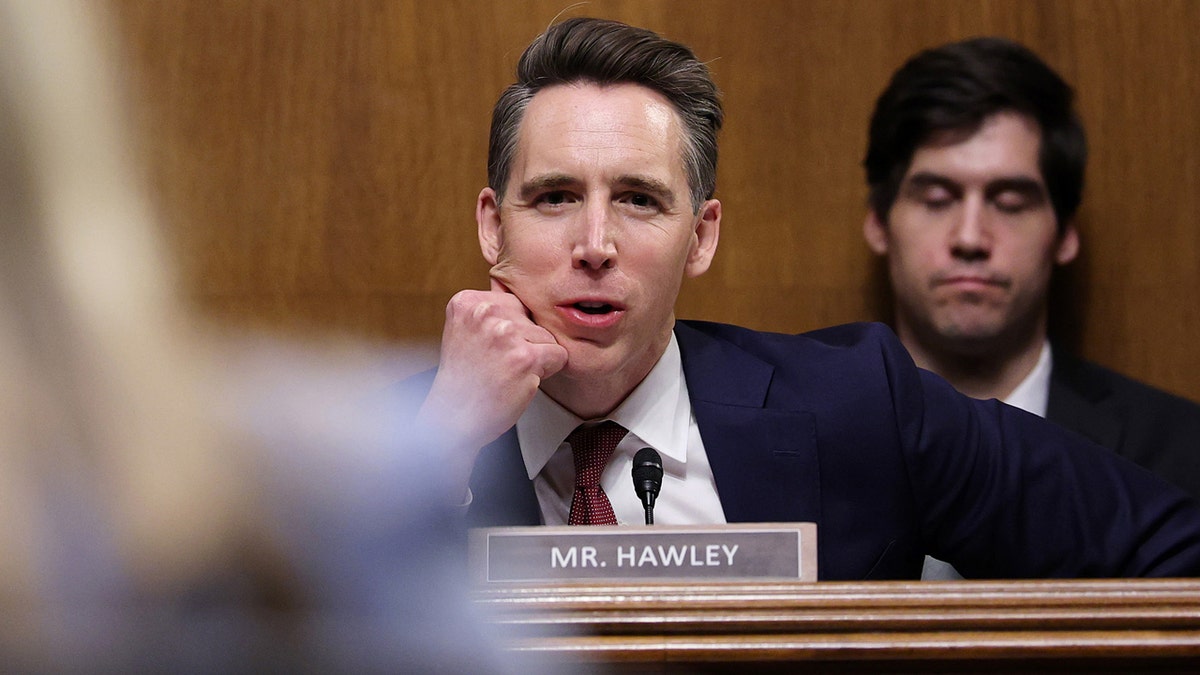
«Let’s not pretend that this is anything other than the president exercising the statutory authority Congress has given him for decades,» Sen. Josh Hawley, R-Mo., said of Trump’s imposition of tariffs. (Win McNamee/Getty Images)
The Office of the U.S. Trade Representative says the U.S. is a signatory to more than 14 total trade pacts. Congress has ratified several of those in recent years. That includes the USMCA. That’s a trade pact President Trump pushed – alongside former House Speaker Nancy Pelosi, D-Calif., in 2020 for the U.S., Mexico and Canada. That deal replaced NAFTA, the North American Free Trade Agreement, approved by Congress in 1993. Congress also greenlighted «CAFTA, the Central American Free Trade Agreement, in 2005.
So, Congress has engaged in trade somewhat in recent decades. But maybe not as much as it should have.
Greer appeared for a second time on Capitol Hill Wednesday, testifying before the House Ways and Means Committee.
TRUMP PUSHES BACK ON ‘REBEL’ REPUBLICANS OVER TARIFFS: ‘YOU DON’T NEGOTIATE LIKE I NEGOTIATE’
«Any deal that you do, are you going to bring that to Congress for a vote?» asked Rep. Suzan DelBene, D-Wash.,
«We’ll do what the law requires. Some of it’s consultation. Some requires a vote. So we’ll follow the law,» replied Greer.
But DelBene pressed Greer on the president using emergency powers on the tariffs. She quoted from the statute.

Rep. Suzan DelBene, D-Wash., pressed Greer on the Trump administration’s leveraging of executive powers. (Reuters)
«It states, ‘The President, in every possible instance, shall consult with Congress before exercising any powers,’» said DelBene. «That didn’t happen.»
Greer said he called Ways and Means Committee Chairman Jason Smith, R-Mo., and the top Democrat on the panel, Rep. Richard Neal, D-Mass.
«I argue that we did not have that consultation,» said DelBene, who sits on the trade subcommittee.
WHITE HOUSE WARNS AGAINST TARIFF RETALIATION, SAYS TRUMP ‘HAS SPINE OF STEEL AND HE WILL NOT BREAK’
But less than two hours later — with Greer still testifying — President Trump announced he was now pausing most tariffs for three months. But still imposing steep tariffs on China.
Rep. Steven Horsford, D-Nev., was apoplectic.
«He announced it on a tweet?» an incredulous Horsford asked of Greer. «WTF? Who’s in charge?»

Rep. Steven Horsford, D-Nev., appeared beyond furious with the rollout of Trump’s tariff plan. (Leigh Vogel/Getty Images for Congressional Black Caucus Foundation)
«The president of United States is in charge,» Greer said.
«And what do you know about those details?» countered Horsford. «It looks like your boss just pulled the rug out from under you.»
Horsford later asked if what the President executed was «market manipulation.» Greer said it wasn’t.
HOUSE DEMOCRAT SAYS HE’D VOTE TO PROTECT TRUMP’S TARIFF PLAN, WORRIES WHITE HOUSE WILL STAND DOWN
So, when the hearing adjourned, yours truly and Nikole Killion of CBS pursued Greer to get more clarity on the president’s new strategy.
«Can you explain why you were caught flat-footed about the change in the trade policy? Were you aware of any of this?» I asked Greer before he stepped into an anteroom.
We resumed the quest in the hall.
«Were you not told about this?» I asked.
«Did you know before your testimony?» added Killion.
«I’ll just refer you to my testimony,» said Greer.
«Your testimony did not reflect what it was implemented during the hearing,» I followed up.
«I’ll just refer you to my testimony,» Greer repeated.
«But that’s inconsistent with the decision of the president,» I said.
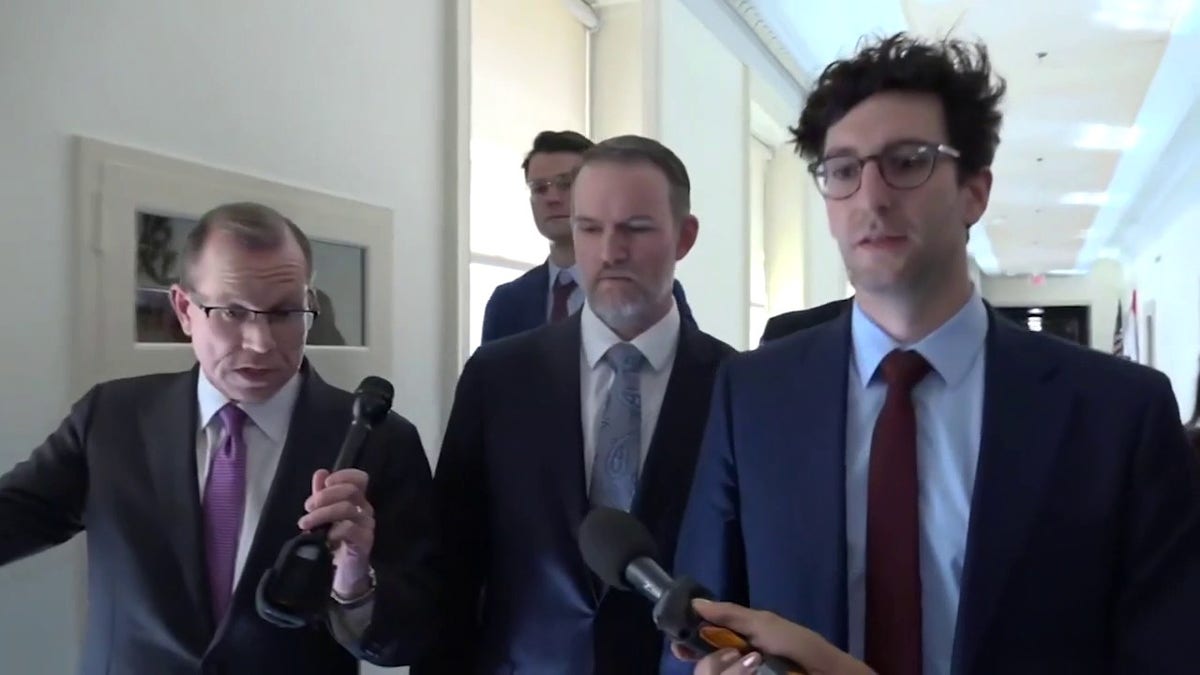
I tried to get a few answers out of Greer after one of his hearings. He remained fairly mum on most of what he was asked. (FOX)
An aide to Greer then intervened.
«I think the ambassador was extremely clear in his testimony about what was going on, and the president could make the choice,» the aide interjected.
«Explain why you don’t think that this was market manipulation. You said it wasn’t,» I followed up.
HOUSE CONSERVATIVES READY TO OPPOSE SENATE GOP FRAMEWORK FOR TRUMP TAX CUT PACKAGE
«Were you aware that there would be a pause before you came here to Capitol Hill? Yes or no? Yes or No, sir?» Killion continued.
Greer then disappeared down a winding staircase in the Longworth House Office Building.
Let’s shift back to the Senate hearing on Tuesday with Greer.
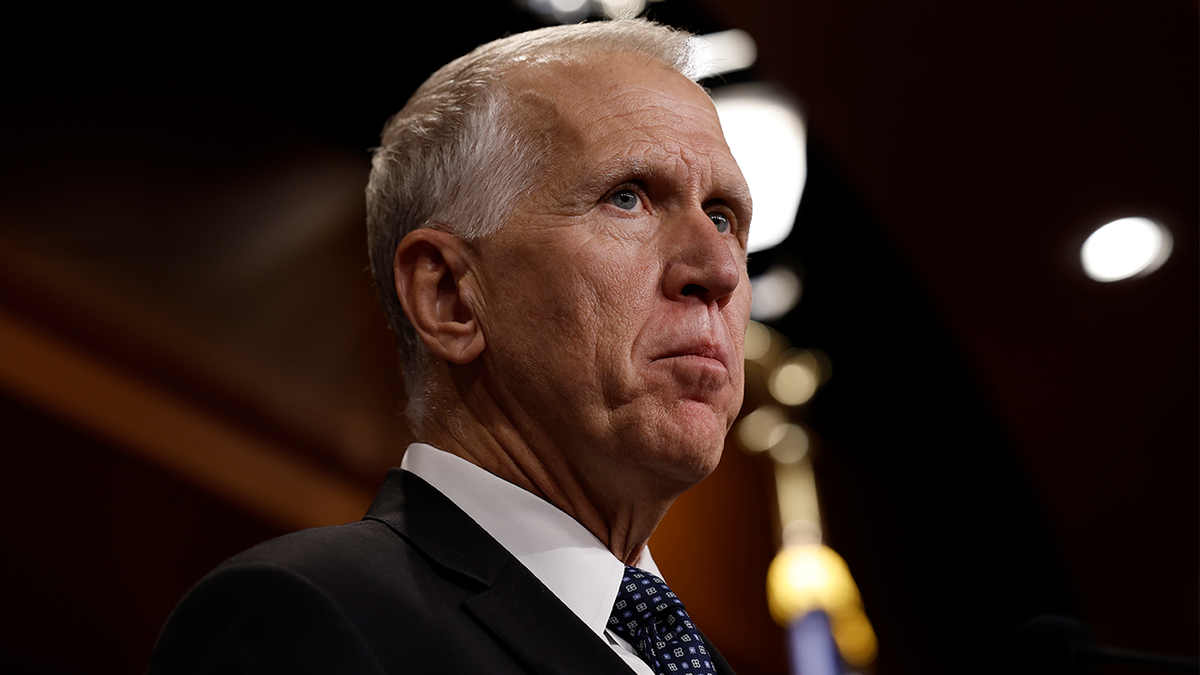
Sen. Thom Tillis, R-N.C., who faces a potential uphill battle for re-election next year, was more blunt in his questioning of Greer, asking, «Whose throat do I get to choke if this proves to be wrong?» (Anna Moneymaker/Getty Images)
Sen. Thom Tillis, R-N.C., could face a competitive re-election bid next year. He asked a pointed question to Greer.
«Whose throat do I get to choke if this proves to be wrong?» Tillis asked.
«Well, Senator, you can certainly always talk to me,» replied Greer.
CLICK HERE TO GET THE FOX NEWS APP
«So, if you own this decision, I’ll look to you to figure out if we’re going to be successful,» said Tillis. «If you don’t own the decision, I’m just trying to figure out who’s throat I get to choke if it’s wrong.»
Congress,Trade,Trump’s First 100 Days,Economy,Senate,House Of Representatives
INTERNACIONAL
House Dem’s graphic chicken decapitation ‘horrified’ her college roommates: ‘Blood went everywhere’

NEWYou can now listen to Fox News articles!
FIRST ON FOX: College roommates of Rep. Marie Gluesenkamp Perez, D-Wash., who is now 37-years-old, said they were «horrified» after the now-Democrat member of Congress up for reelection this year allegedly «serrated» a chicken’s head off with «a dull kitchen knife» while they lived together.
The incident allegedly stemmed from the vulnerable Democratic congresswoman and her roommates engaging in the practice of «urban farming,» a practice that is quite popular in Portland, where they went to a small private school called Reed College.
Gluesenkamp Perez’s former roommate and others connected to her from their time at Reed College, recounted the incident when they were all trying to research ways to humanely kill the chicken, but Glusenkamp Perez allegedly thought everyone was being «f—ing pu–ies,» so she «grabbed» the chicken and began «grinding [the chicken] down with a dull knife» leading the animal to begin «gasping for air with no lungs to suck it in.»
«Then she held up the body as it spazzed out and blood went everywhere like some crazy Santeria voodoo ritual,» recalled her former roommate, Isaac Eger, while attending Reed, who also wrote about his house’s «epic fail» at urban farming back in 2014.
TOP DEM FUNDRAISER SLAMMED FOR HONORING NAZI OFFICER IN SOCIAL MEDIA POST: ‘DISTURBING TREND’
Rep. Marie Gluesenkamp Perez (D-Wash.) (Tom Williams/CQ-Roll Call, Inc via Getty Images)
Eger, who hosts the podcast that brought together folks from Gluesenkamp Perez’s past for an episode a few weeks ago, refused to speak with Fox News Digital or provide any comments on, or to clarify events from, his time living with the Washington State congresswoman. He did imply to Fox News Digital that his podcast is a joke, and said that if he had to clarify any part of it, that would extinguish the comedic value.
«Marie bravely was like, ‘Ill dispatch of this chicken,’» Eger recounted on the podcast episode subscribers must pay to listen to titled «Absolutely Sweet Marie Gluesenkamp Perez.»
«Dude, I will never forget, like, frantically YouTubing how to humanely kill a chicken and Marie was just like, ‘You f—ing pussies, like, you’re on YouTube?’ It was, like, you and I on a computer, like, trying to figure this out and she just grabbed it and started swinging it around,» added Sam.
«That’s not at all what happened,» Eger interjected. «She didn’t just ‘chop it.’ She took a dull kitchen knife and tried to serrate[ly] cut … she was grinding this thing down with a dull knife and I remember you were horrified. It was really bad. And we saw, like, the chicken’s, like, decapitated head just, like, gasping for air with no lungs to suck it in, and then she held up the body as it spazzed out and blood went everywhere like some crazy Santeria voodoo ritual.»
While Sam contested the serrating, he affirmed the knife was quite dull and said «for sure» after Eger began to describe the scene of the chicken’s blood spurting everywhere.
«For sure, for sure. Everyone knows that you can run around like a chicken with your head cut off, but what that saying leaves out is what happens to the head without the body and it’s, like, also still completely functioning for a second,» Sam continued as Eger laughed.
‘GOP’ HOUSE CANDIDATE ADMITS SHE’S ACTUALLY A PROGRESSIVE IN VIRAL VIDEO: ‘TELLING PEOPLE THE TRUTH’
Eger went on to point out what he felt the incident symbolized, particularly as it related to his old college roommate’s time as an elected member of U.S. Congress.
He said that while part of him «respected» Gluesenkamp Perez «for her bravery» and her pro-activeness in killing the chicken, he also chided the inhumane nature in which she killed the chicken and said it represented the large amount of «hubris» the now-congresswoman had even as a college student at a small private liberal arts school.

Rep. Emily Randall, D-Wash., accepts the «The Chick» painting from Rep. Michael Baumgartner, R-Wash., left, as members of the Washington State delegation look on, in Longworth building on Friday, January 9, 2026. The painting goes to the newest member of the delegation every new Congress. Pictured in the background are, from left, Reps. Baumgartner, Marie Gluesenkamp Perez, D-Wash., Marilyn Strickland, D-Wash., Dan Newhouse, R-Wash., Kim Schrier, D-Wash., and Rick Larsen, D-Wash. (Tom Williams/CQ-Roll Call, Inc via Getty Images)
«I think Marie is a very proud and she’s an incredibly stubborn person who I think has unbelievable confidence in herself,» Eger said during the podcast episode, which was entirely focused around the congresswoman and their history with her in college.
«I think [that] is what it takes to become a f—ing congressperson,» Eger said.
«I think we are finding a thread here, yeah,» added Sam. «I think also, like, being like, ‘F–k the consequences. I’m just going to go, like, being head– being headstrong.’ And just, like, ‘I’m going to take care of this. Like, and this might be a really bad idea, but here I am. It’s already done. It’s already happening.»
During the Jan. 29 podcast episode, Eger, Boguslaw, who also declined to speak to Fox News Digital, and Sam also recounted their time living with Gluesenkamp Perez and her bunny she brought with her at the time named «Meatball.» According to the crews of former Reed College students, Gluesenkamp Perez would breed Meatball and then eat its kids.
‘AT SOME POINT, YOU AGE OUT’: OBAMA URGES DEMOCRATS TO PASS TORCH TO YOUNGER CANDIDATES
«A friend of mine said that when he came back to the house once, she started a rabbit-eating cult,» Eger said during the podcast. He and Boguslaw recalled how «absent-minded» Gluesenkamp Perez was when it came to their «urban farming venture,» describing how they would often have to take care of her animals for her less they would perish.
«Did you go with her to breed her rabbit and we watched them, like, smash the rabbit against the wall?» Eger asked Sam during the podcast episode.
«Meatball? Hell yeah,» Sam responded.

Representative Marie Gluesenkamp Perez, a Democrat from Washington, reads a document on the steps of the US Capitol in Washington, DC, US, on Saturday, Sept. 30, 2023. (Anna Rose Layden/Bloomberg via Getty Images)
Eger also took shots at the congresswoman he used to room with, describing her as a carpetbagger and accusing her of «cosplaying as a poor person» during college and still today even though he believed she was likely having college paid for by her parents, arguing she could not have been eligible for financial aid.
«Her parents are wealthy. Because if you can afford – and she’s one of four kids – if you can afford to pay for a $40,000 a year college, so that doesn’t include like the other, like at least $10,000 dollars a year in living expenses, you’re wealthy,» Eger argued during his podcast. «That means she wouldn’t have qualified for financial aid. Now, what she says in order – this is part of her lore, she’s definitely cosplaying as a poor person.»
«Which never happened at Reed. As far as I’m concerned,» Boguslaw said back sarcastically with a laugh.
Eger also charged Gluesenkamp Perez with lying about being a fifth generation Washingtonian during his 2-hour-long podcast episode, alleging she is actually originally from Houston.
«She grew up in Houston, Texas. Her father was Mexican, born in Mexico, where her mother, who is from Washington, met him,» Eger said. «She brought him over the border, and then Marie’s kind of an anchor baby.»
CLICK HERE TO DOWNLOAD THE FOX NEWS APP

Rep. Marie Gluesenkamp Perez, D-Wash., walks up the steps of the U.S. Capitol. (Photo by Anna Moneymaker/Getty Images)
Gluesenkamp Perez is the member of Congress representing Washington’s 3rd Congressional District, which covers the southwest portion of the state, including the Vancouver and Portland-area suburbs around Clark County.
She was first elected to Congress in 2022 and then was reelected in 2024. Gluesenkamp Perez has significantly out-raised all of her competitors, with almost $2.5 million cash-on-hand, according to Ballotpedia.
Her nearest competitor is Republican John Braun, a member of the Washington State Senate, who has a little over $700,000 cash-on-hand, per Ballotpedia.
Gluesenkamp Perez, nor any of her representatives, responded to Fox News Digital’s request for comment on this story.
democrats,washington,democrats elections,midterm elections,politics
INTERNACIONAL
Luego de bombardear Ucrania con 400 drones, Rusia dijo que no espera avances rápidos en el diálogo de Ginebra
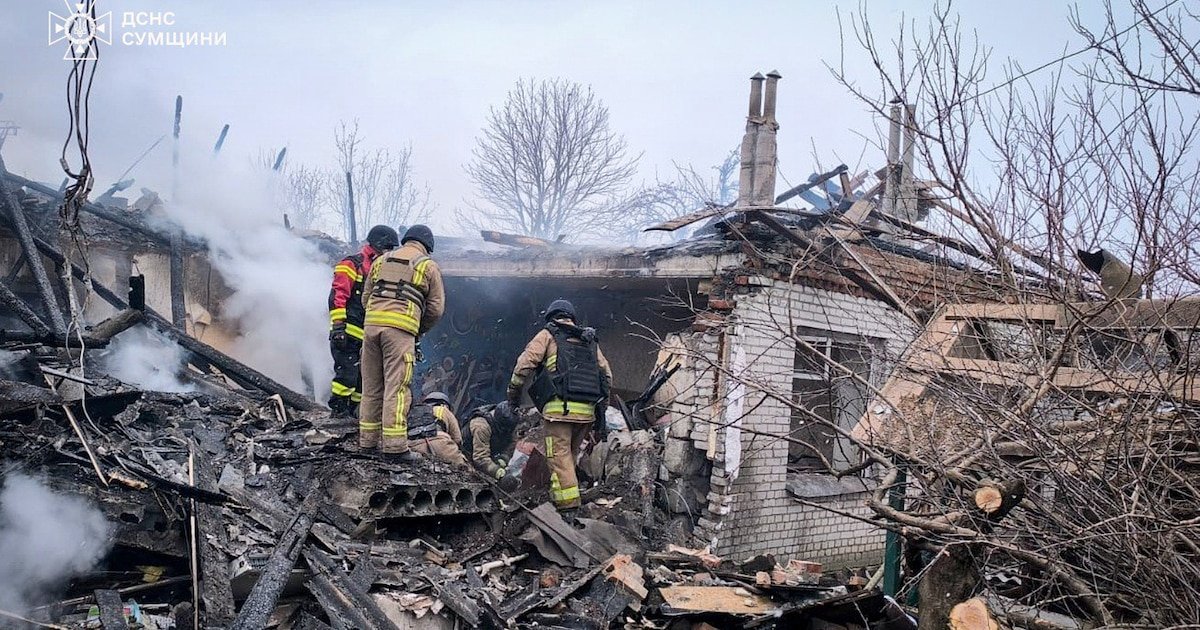
El Kremlin advirtió el martes que no espera resultados el primer día de las conversaciones de paz en Ginebra, horas después de que Rusia lanzara casi 400 drones y 29 misiles contra Ucrania en un ataque que dejó al menos tres muertos, nueve heridos y a decenas de miles de personas sin calefacción ni agua.
“No creo que debamos esperar noticias hoy, ya que está previsto que los trabajos continúen mañana”, declaró el portavoz del Kremlin, Dmitri Peskov, en rueda de prensa, descartando cualquier anuncio relevante para la jornada.
El bombardeo nocturno apuntó al sistema energético ucraniano en 12 regiones. Tres trabajadores energéticos murieron cerca de la ciudad industrial de Sloviansk cuando un dron ruso atacó el vehículo en que se transportaban. En Odesa, ciudad portuaria del sur, decenas de miles de residentes quedaron sin calefacción ni agua potable.
“Fue un ataque combinado, calculado deliberadamente para causar el mayor daño posible a nuestro sector energético”, escribió el presidente ucraniano Volodimir Zelensky en redes sociales.
Las defensas aéreas ucranianas lograron derribar 24 de los 25 misiles de crucero y 367 de los aproximadamente 396 drones lanzados, según la Fuerza Aérea de Ucrania. Los cuatro misiles balísticos Iskander-M no pudieron ser interceptados.
Pese al ataque, las delegaciones de Moscú y Kiev llegaron a Ginebra para la tercera ronda de negociaciones tripartitas mediadas por Estados Unidos, que se extenderá durante dos días. El enviado del presidente Donald Trump, Steve Witkoff, y el yerno presidencial Jared Kushner participarán en los encuentros, junto al general Alexus Grynkewich, comandante de las fuerzas estadounidenses y de la OTAN en Europa.
Las expectativas de avance, sin embargo, son bajas. Según una persona familiarizada con las negociaciones que habló con AP bajo condición de anonimato, se esperan discusiones “duras” sobre el territorio ucraniano ocupado por Rusia, dado que Moscú insiste en que Kiev ceda el control del Donbas. Los jefes militares de los tres países también discutirán cómo funcionaría el monitoreo de un eventual cese del fuego.
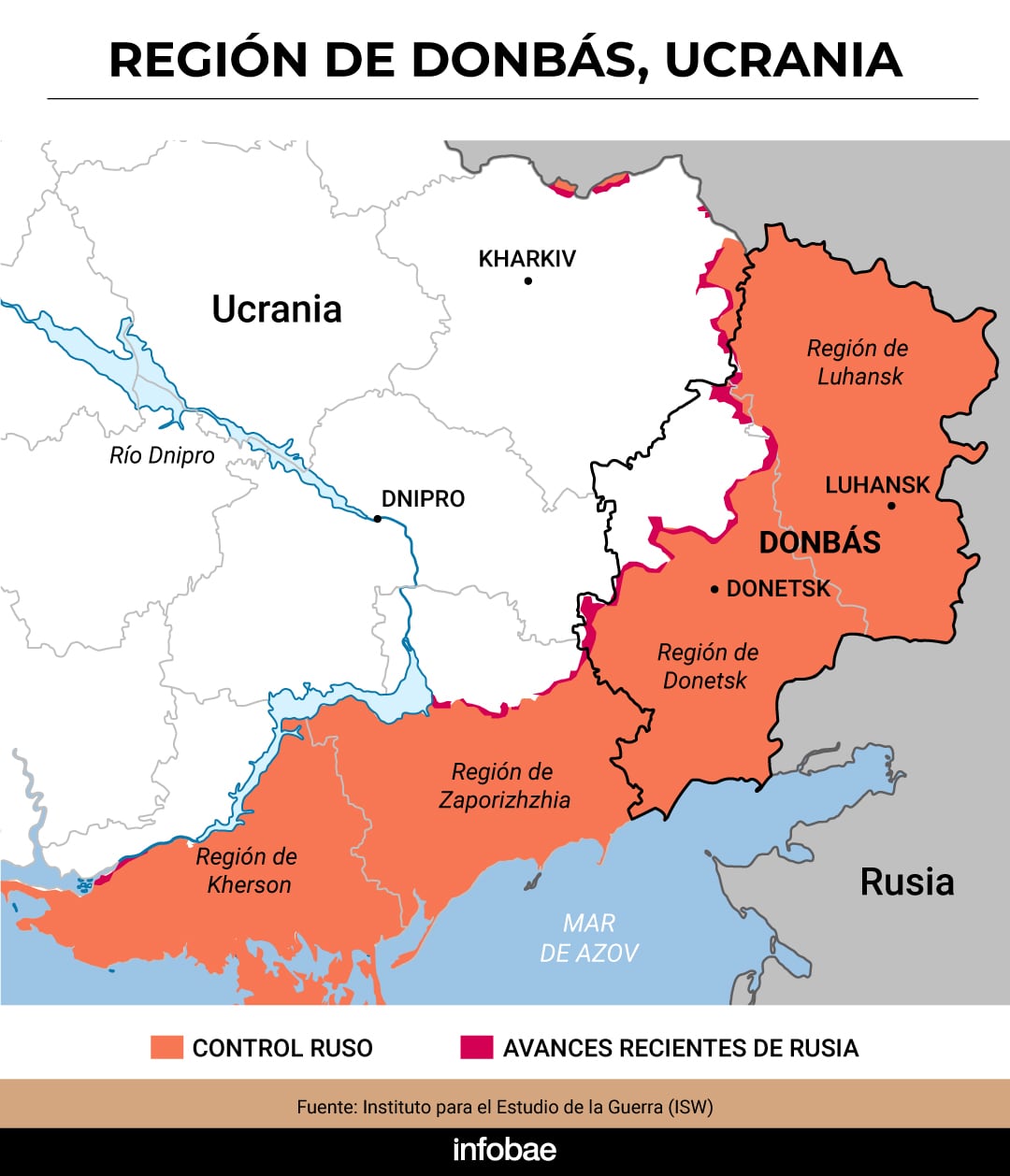
Las conversaciones de Ginebra son la tercera ronda de un proceso que comenzó en Abu Dabi el 23 de enero y tuvo su segunda sesión en esa misma ciudad el 4 y 5 de febrero.
Trump describió la reunión como “grandes conversaciones” y, al regresar a Washington desde Florida el lunes por la noche, advirtió: “Ucrania mejor que venga a la mesa rápido”. No quedó claro de inmediato a qué se refería, dado que Kiev ha participado activamente en todas las rondas de negociación y ha aceptado las propuestas estadounidenses, incluida la de un cese del fuego incondicional y de largo plazo.
Zelensky señaló que el bombardeo ruso complica precisamente esos esfuerzos diplomáticos. “Cuanto más mal venga de Rusia, más difícil será para todos llegar a acuerdos con ellos. Los socios deben entender esto. En primer lugar, esto concierne a Estados Unidos”, escribió.
El mandatario exigió además que Rusia sea “responsabilizada” por sus ataques contra la población civil y reclamó sanciones y apoyo militar inmediato. “Nuestra diplomacia será más eficaz si hay justicia y fortaleza”, afirmó.
Las conversaciones celebradas a principios de este año en Abu Dabi se centraron en cuestiones como la forma de establecer una zona desmilitarizada en las zonas en disputa y cómo las fuerzas armadas de todas las partes podrían mantenerse en contacto, según la fuente.
Las conversaciones de Ginebra tuvieron lugar mientras funcionarios estadounidenses también mantenían conversaciones indirectas con Irán en la ciudad suiza.
Military Conflicts
INTERNACIONAL
Irán realiza maniobras militares en el estrecho de Ormuz, horas antes de las negociaciones nucleares con Estados Unidos
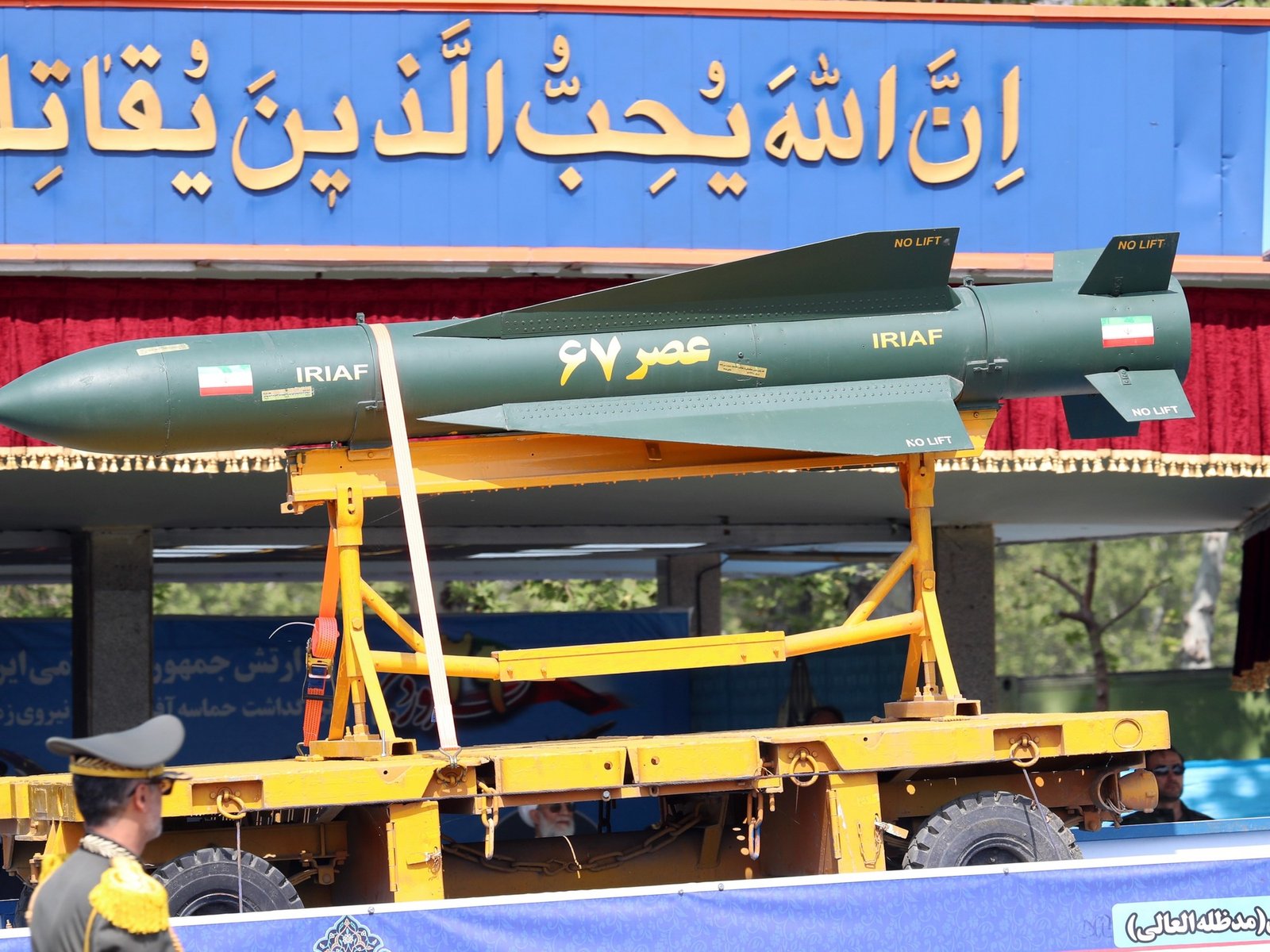
Sospechas

 POLITICA2 días ago
POLITICA2 días agoUno de los jefes de la CGT adelantó que convocarán a un paro general por la reforma laboral: “Trabajaremos para que sea una gran huelga”

 POLITICA2 días ago
POLITICA2 días agoEfecto Santa Fe: policías y penitenciarios de Río Negro rechazaron un aumento en cuotas y amenazan con acampar por tiempo indeterminado en Viedma

 CHIMENTOS1 día ago
CHIMENTOS1 día ago¡Sorpresa total! Wanda Nara irrumpió en la “Casita” de Bad Bunny y revolucionó River





